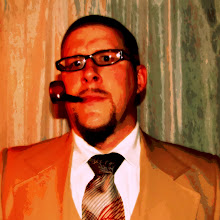 Any chats of American history worth their salt often at some point mention the book A People’s History of the United States. The author of that book, Howard Zinn is a juggernaut in the field and a respected thinker and researcher. Although historical thinking and perspectives from the distant past are usually music to a social studies teacher’s ears, I want to instead focus on the recent past and on the business of teaching by using an excerpt from a Zinn article titled, Changing Minds, One at a Time from the March, 2005 issue of The Progressive magazine…
Any chats of American history worth their salt often at some point mention the book A People’s History of the United States. The author of that book, Howard Zinn is a juggernaut in the field and a respected thinker and researcher. Although historical thinking and perspectives from the distant past are usually music to a social studies teacher’s ears, I want to instead focus on the recent past and on the business of teaching by using an excerpt from a Zinn article titled, Changing Minds, One at a Time from the March, 2005 issue of The Progressive magazine…What does it take to bring a turnaround in social consciousness--from being a racist to being in favor of racial equality, from being in favor of Bush's tax program to being against it, from being in favor of the war in Iraq to being against it? We desperately want an answer, because we know that the future of the human race depends on a radical change in social consciousness.
It seems to me that we need not engage in some fancy psychological experiment to learn the answer, but rather to look at ourselves and to talk to our friends. We then see, though it is unsettling, that we were not born critical of existing society. There was a moment in our lives (or a month, or a year) when certain facts appeared before us, startled us, and then caused us to question beliefs that were strongly fixed in our consciousness--embedded there by years of family prejudices, orthodox schooling, imbibing of newspapers, radio, and television.
This would seem to lead to a simple conclusion: that we all have an enormous responsibility to bring to the attention of others information they do not have, which has the potential of causing them to rethink long-held ideas. It is so simple a thought that it is easily overlooked as we search, desperate in the face of war and apparently immovable power in ruthless hands, for some magical formula, some secret strategy to bring peace and justice to the land and to the world.
"What can I do?" The question is thrust at me again and again as if I possessed some mysterious solution unknown to others. The odd thing is that the question may be posed by someone sitting in an audience of a thousand people, whose very presence there is an instance of information being imparted which, if passed on, could have dramatic consequences. The answer then is as obvious and profound as the Buddhist mantra that says: "Look for the truth exactly on the spot where you stand."
Although Zinn is not touching directly on history when reading this excerpt I cannot feel anymore convinced that he is indirectly describing exactly what good teaching is… to provide information to students and let them wrestle with the information and come up with their own ideas of history and the society and times we live in; to decide truth for themselves.
I think the ending of the recent campaign season and all the fodder that was reported, discussed, and lamented by both sides and in the media is a great example of sifting through a mountain of information and trying to situate oneself somewhere along the political spectrum. To arrive at a place where wisdom, knowledge, and morality all exist together in balanced harmony. I think this is the message of powerful teaching and learning, powerful historical investigation, and appropriate use of reasoning and critical thinking skills. I applaud Howard Zinn (yet again) for bringing this to the attention of the people. Are you listening?
To view a short video biography on Howard Zinn, please follow the link below:
http://www.youtube.com/watch?v=Ehc3V1g5pm0


No comments:
Post a Comment